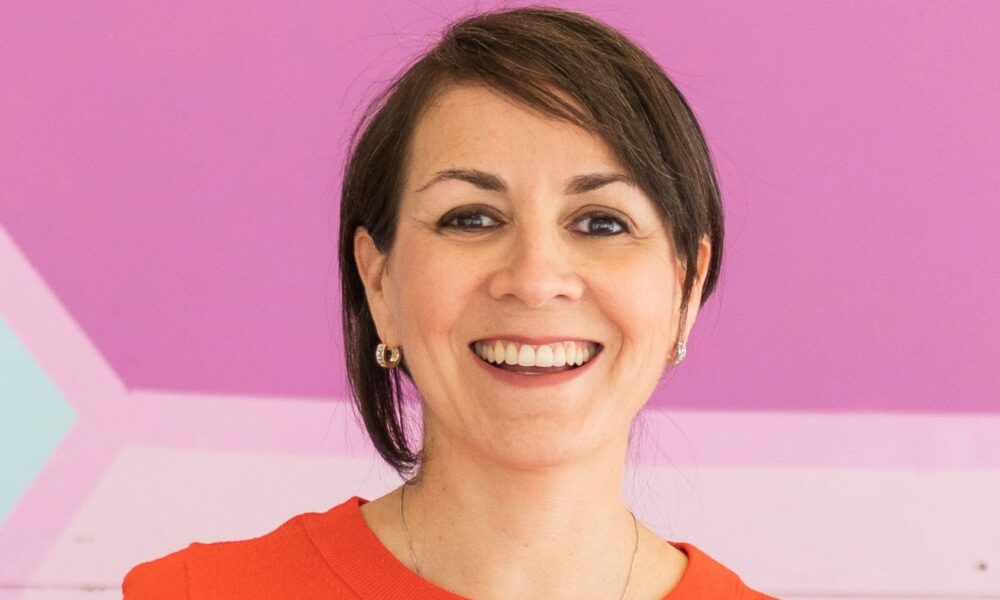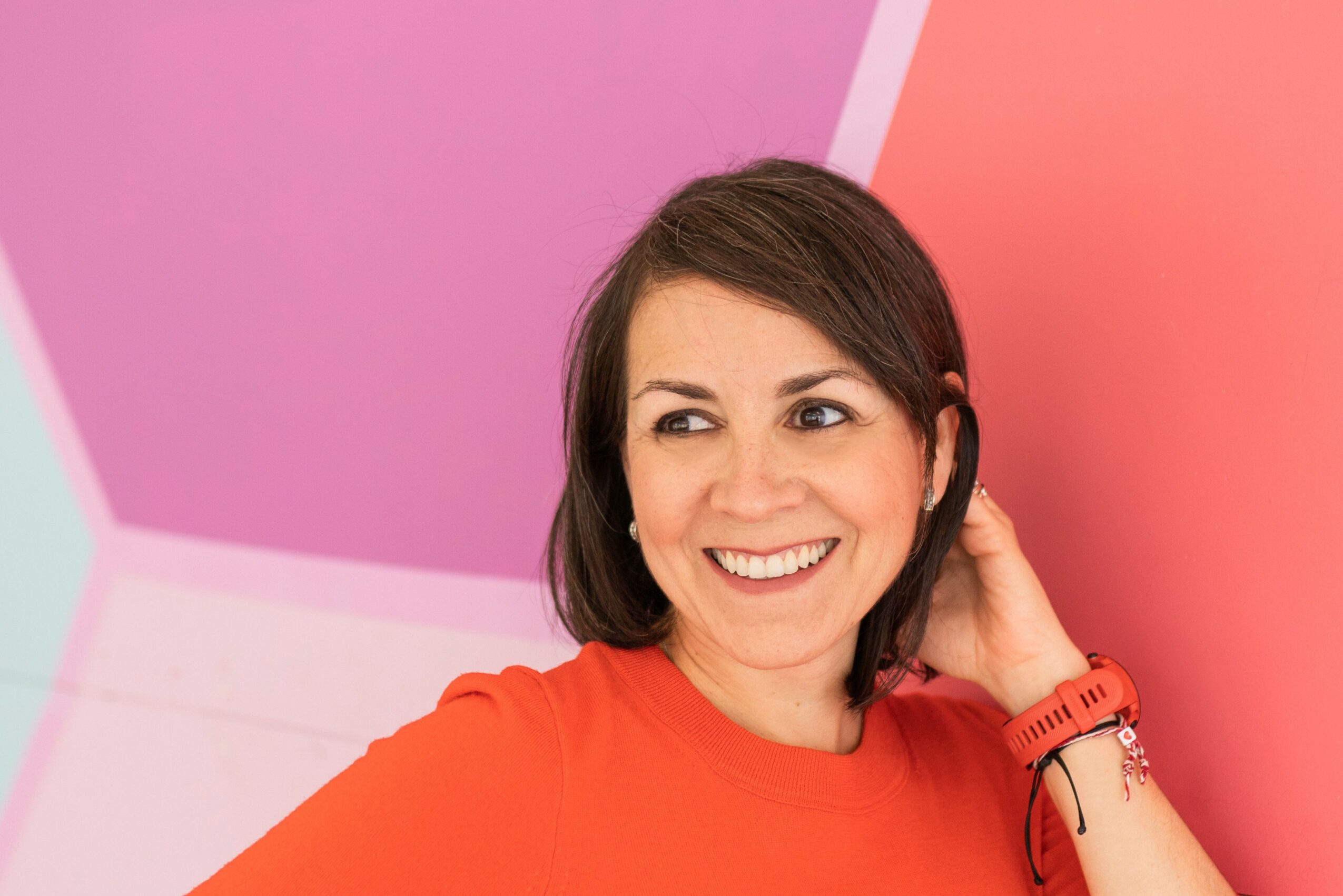

Today we’d like to introduce you to Aideé Granados. They and their team shared their story with us below:
When undergoing cancer treatment in 2013, Aideé Granados—who immigrated to the U.S. from Mexico in 2012—witnessed other Hispanic women seeking treatment later, forgoing treatment altogether, having poorer outcomes, and missing out on potentially life-saving preventive care. Aideé witnessed firsthand the role that social determinants of health, such as economic status, acculturation, language barriers, and a lack of health literacy, play in preventing good outcomes. And she confronted a system that often prescribes without due consideration for culture, ethnicity, and roots. In response, she launched ROSAesROJO as a blog designed to accompany Hispanic women and their communities on their journey to good health.
In 2016, the project filed as a formal non-profit 501(c)(3) to reach more women locally with wellness education program The Rojo Way. New in 2022, the organization launched the app-based online wellness community SuperVive Communidad. Together, these programs are empowering women in breaking the pathology of unhealthy lifestyles and making decisions that create positive ripple effects into their home communities.
Now staffed by a team of 6 and supported by 11 board members, 12 wellness facilitators, and 30+ volunteers, ROSAesROJO is building the capacity to increase our reach in the Hispanic community every year. Through this work, ROSAesROJO is creating positive health communities where culturally tailored and accessible chronic disease prevention programs are at the center.
In 2018, ROSAesROJO was named a fellow of the Social Innovation Accelerator of the United Way of Metropolitan Dallas as well as a member of KERNEL, the United Way of Tarrant County’s accelerator program.
Also in 2019, Aideé, Founder, and CEO was honored with the SXSW Community Service Award and Dallas Business Journal Minority Business Leader Award with the distinction of Community Advocate honoree. In 2020, Aideé was selected as a Roddenberry Foundation fellow, and the organization was named a Social Venture Partners of Dallas advisee.
In 2021, ROSAesROJO participated in the CDC Foundation Empowered Health Cancer-Free Challenge, where the social innovation was chosen as a Top 5 Idea Winner around the world. Most recently, we were selected as a fellow in the Collin County Nonprofit Success Institute for 2022, led by Communities Foundation of Texas, United Way of Dallas, and Toyota. Aideé is an Echoing Green (2022) Fellow and Mira Fellow (2023).
Can you talk to us a bit about the challenges and lessons you’ve learned along the way? Looking back, would you say it’s been easy or smooth in retrospect?
The work of ROSAesROJO addresses health inequities by dismantling cultural, income, language, and education barriers to well-being with resources that are affordable, in Spanish, and developed for and by Hispanic women. When people are informed and in control of their health—and build strong community support systems—they become confident and motivated to utilize resources and implement solutions.
********
The Need
In Hispanic culture, women are frequently the axis around which family and community orbits. They are decision-makers, advocates, and, most profoundly, givers. In too many instances, however, this long tradition of generous care for others results in poorer health outcomes for women, both in mental and physical health. It is a quiet crisis that speaks to a larger and more systemic issue: Hispanic women, and the entire Hispanic population overall, face deeply inequitable health disparities today in the U.S., nearly all of which stem from social determinants of health, such as income, education status, home language, and physical geography.
In fact, the Hispanic community in the United States faces a multitude of challenges, with key negative determinants of health painting a concerning picture:
A staggering 81% of Hispanic adults in the U.S. express a preference for health professionals who speak Spanish, underlining the importance of language accessibility in healthcare (PRC, 2022). However, the healthcare workforce falls significantly short in reflecting this need, with only 7% of doctors and 9% of health professionals identifying as Hispanic (PRC, 2022).
Compounding the issue, language barriers often force Hispanics to rely on their children as interpreters. This challenge, coupled with cultural differences, leaves nearly 50% of Hispanics feeling unhealthy because they struggle to comprehend health instructions (PRC, 2022).
Hispanic immigrants, particularly women, confront additional hurdles that contribute to higher rates of social isolation and loneliness compared to their U.S.-born counterparts and other demographic groups (CDC, 2021). Loneliness, a factor linked to a 20% increased risk of premature death, presents a health threat akin to obesity (The Guardian, 2016).
Economic disparities further exacerbate health challenges within the Hispanic community, as 25% live below the poverty line. A lack of health insurance compounds these issues, affecting 20% of Hispanics—more than double the rate observed among their white counterparts (KFF, 2021).
Legal status also emerges as a barrier to higher income and financial stability, hindering the overall well-being of Hispanic individuals (CMS, 2019). Additionally, fear and shame are increasingly recognized as social determinants of health. Fear, stemming from concerns like immigration status language barriers, and shame, influenced by cultural prejudices surrounding medical check-ups and taboo topics, further contribute to the complex health landscape faced by the Hispanic community (NLM, 2017). Addressing these multifaceted challenges is crucial for promoting the well-being of this vibrant and diverse population.
These social determinants of health are causing:
– Six in ten Americans live with at least one chronic disease, like heart disease and stroke, cancer, or diabetes. These and other chronic diseases are the leading causes of death and disability in America, and they are also a leading driver of healthcare costs. (CDC, 2023).
– Among all the causes of mortality and morbidity that affect the well-being of Hispanics in the US, the leading one is cancer. (American Cancer Society, 2020).
– Hispanic adults have a 70% higher likelihood of receiving diagnosis of diabetes compared to non-Hispanic white adults. (OMH, 2018).
– 45.6% of Hispanic adults are obese. (CDC, 2021).
39% of Hispanic adults in the United States have high blood pressure. (CDC, 2021).
– Suicidal thoughts reached 23% among Hispanics, compared to 5% among African Americans and 5% among whites. (CDC, 2021)
Nonetheless, lifestyle choices are shown to account for 34% of a person’s health, yet when Hispanic women and their families do access care or wellness and prevention resources, their cultural context and home language are often not considered, entrenching existing health inequities (Hood, et al 2016)… For example, while improvements are being made nationally, many of the primary health awareness organizations, such as the American Cancer Society, American Heart Association, and others, still widely lack adequately translated materials for Spanish-speaking readers. These barriers cause Hispanics to prefer not to seek treatment or prevention help, and when they decide to do so, it is often too late, or treatments are much more expensive.
We need an innovative approach to behavioral whole health intervention that integrates Hispanic cultural needs, acknowledges the unique experiences of those who have been historically excluded economically, builds networks of community care, and frames solutions in ways relevant to our roots. Where strong networks of social support were once considered generally beneficial, we are now seeing, following the pandemic, how vital they are and how directly they impact our health.
Today, ROSAesROJO’s social innovation works proactively to educate our community on adopting the types of behaviors shown to improve whole health outcomes: our programs teach healthy eating, mental health, physical activity, and empowered health (self-advocacy) as the foundation for achieving and maintaining well-being while building networks of social support. This work is designed for and by Hispanic women and is grounded in the principles of community care and cultural humility, allowing us to bridge the divide in health outcomes and dismantle health inequities in our community.
Great, so let’s talk business. Can you tell our readers more about what you do and what you think sets you apart from others?
Mission Statement
ROSAesROJO delivers health and well-being education to Hispanic women and their families in the U.S. by creating positive health communities where culturally tailored and accessible chronic disease prevention programs are at the center.
We use four pillars to drive equitable whole health behavioral change: Nutrition, Mental Health, Physical Activity, and Empowered Health.
Vision & Core Values
Vision
ROSAesROJO dismantles income, language, and education barriers to health and well-being for Hispanic women and their families in the U.S. We are leading Hispanics to live healthier lives and reduce the incidence of chronic diseases among them.
ROSAesROJO envisions a nation with greater health equity, one in which social determinants of health have significantly reduced negative impacts on the health of Hispanic women. When people are informed, and in control of their health, they improve behavioral health and are more motivated to utilize resources and implement solutions. With access to resources and opportunities, Hispanic women make empowered decisions for themselves, their families, and their communities.
Our Five Core Values
– Love for Life: Taking care of our health and spreading the desire to care for ourselves in an integrative way. – Let’s SuperVive!
– Hope for the Best: We maintain a positive tone, focusing on solutions and emphasizing the importance of understanding what we can manage and change.
– “Community as Medicine”: Whole Health powered by relations and connections. We want to accompany each other; we are all in this together. We are good at building trustworthy, authentic relationships.
– Cultural Diversity: Meeting our participants wherever they are, embracing their diverse Hispanic identities, and encouraging them to advance to health.
– Sense of Agency: Self-advocacy to take charge of their own lives, advocating for a lifestyle that brings us closer to well-being and happiness.
Where we are in life is often partly because of others. Who/what else deserves credit for how your story turned out?
– Our funders and supporters. Please see Impact Report to know about them (last page) – Board of Directors: 11 members; names displayed on Impact Report (last page)
– Staff: Laura Mendivil, Development Director. Tania Lemus, Program Director. Andrea Melguizo, Director of Operations. – Elizabeth Gutierrez, Program Coordinator. Sara Santiago, Communication Coordinator.
– 30+ Volunteers
LATEST IMPACT REPORT: https://en.rosaesrojo.org/_files/ugd/df821e_5c34aad14c144ad98bdcd1143727a646.pdf
Contact Info:
- Website: https://en.rosaesrojo.org
- Instagram: https://www.instagram.com/rosaesrojo/
- Facebook: https://www.facebook.com/rosaesrojo/
- Linkedin: https://www.linkedin.com/company/rosa-es-rojo
- Twitter: @rosaesrojo
- Youtube: https://www.youtube.com/channel/UCgKopVpXiF-KowcAxPBceHQ
- Other: https://en.rosaesrojo.org/supervive

Image Credits
MYMK Photography










